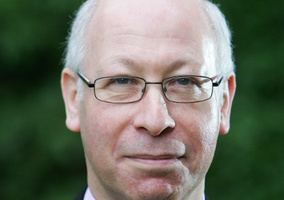Co-production is a “made-up, intellectualised word” which is “language of the system” as opposed to the people charities set out to help, Arfan Hanif said last week.
Hanif was speaking at Trustee Exchange, an event organised by Civil Society Media, on a panel about co-production in charities. Hanif is the CEO of Touchstone, a mental health charity based in Leeds.
He was joined by fellow CEOs Alex Fox of Mayday Trust, Thomas Lawson of Turn2us, and Heather Blake of Changing Faces.
When Hanif was asked about the myths and realities of co-production, he said he did not believe in the term.
He explained: “When we say that co-production is an equal relationship – no it isn’t. We’re there to serve our communities. They’re the leaders – so that’s the reason I don’t like the term co-production, because it’s the language of the system.”
‘Co-production is about relinquishing power’
Although Touchstone has done lots of co-production work, Hanif said he is not a fan of the word.
He said: “I think somewhere society lost that narrative of serving its communities and now its lost it to intellectual discussions that only people in the system really understand.”
Hanif said this language can often exclude the very people it sets out to help. He told the audience they should go back to the communities they want to serve and use their language rather than making them use the language of those in power – the directors and chief executives of civil society.
He continued: “Co-production is about relinquishing power, that’s what it really is about. And those who have been in power for a very long time have to step back and realise what co-production really is.
“It’s not about fluffy words, you need to relinquish your resources, your power, your decision-making.”
Charities should be sculpted by the people they exist for
Turn2us, a national poverty charity, ensured co-production was part of its rebrand last October.
Its CEO Lawson spoke about how charities should try to mitigate harm and suggested co-production could help do so.
“Our civil society sector can cause and does cause harm. And I think one of the most consistent ways it does cause harm is by othering the people for who our organisation exists.
“The service users are outside the boundaries of our organisation and we provide services to them. The moment we are talking about them, we are also identifying us.”
Lawson said although the charity has done a lot of co-production work, Turn2us is far from being a co-produced organisation entirely.
He said: “Our sector is set up to do the opposite of cause harm. So, I think we all have a moral obligation to move our organisations to being by and for the people for who it exists.”
Changing Faces co-produced campaign ‘landed brilliantly’
Changing Faces is a charity that supports people with a scar, mark or condition. A third of the charity’s board is made up of people with lived experience of having a physical difference.
CEO of the charity, Blake, said the “strongest myth” around co-production is that if you hand over power to people who have lived experience that it will end up “being very hard-edged, very pushy” because of the abuse these people often have to endure.
“It’s completely the opposite,” Blake said.
Last September, the James Bond film No Time To Die featured a villain with a scar – and Changing Faces wanted to create a campaign that opposes the stereotypes of villains having physical differences.
Campaigners with lived experience advised the charity to put a positive spin on the proposed campaign.
Blake said they were in the situation where: “No one’s been to the cinema for a while, people want to go out, so saying don’t see the Bond film, this is dreadful, this is appalling – was probably not going to land very well.
“And that all came from them. So, they wanted the campaign to be go and see the Bond film, enjoy it, but think about this stereotype, and maybe next time we’ll have the love interest or best friend played by somebody that has a physical difference.”
As a result, the campaign landed brilliantly, Blake said.
‘You’re stopping us from fixing ourselves’, service users told Mayday Trust
Fox, CEO of homelessness charity Mayday Trust, said the charity asked beneficiaries how they felt about its services.
To its surprise, they told them what the charity was doing was not working for them.
He said: “The lessons people told us from that listening exercise were that our services, whilst well-intentioned and well-organised, and in regulatory terms successful – were not resulting in long-term change. People were cycling in and out of homelessness.
“They said that you’re obsessed by our problems and what’s wrong with us, you think you can fix us, and you’re stopping us from fixing ourselves, and you’re segregating us into specialist services that once we’re into them are really hard to get out of.”
After this exercise, the charity reinvented itself in a way that aligned with what service users wanted.
Fox said the charity’s asset-based approach was a key part of this reinvention.
He said: “It has to run through everything our organisation does. That attitude that people are people, that we all have strengths and something to contribute so therefore these charities or whatever sort of organisations they are, are jointly owned by all of us.”
Related articles












